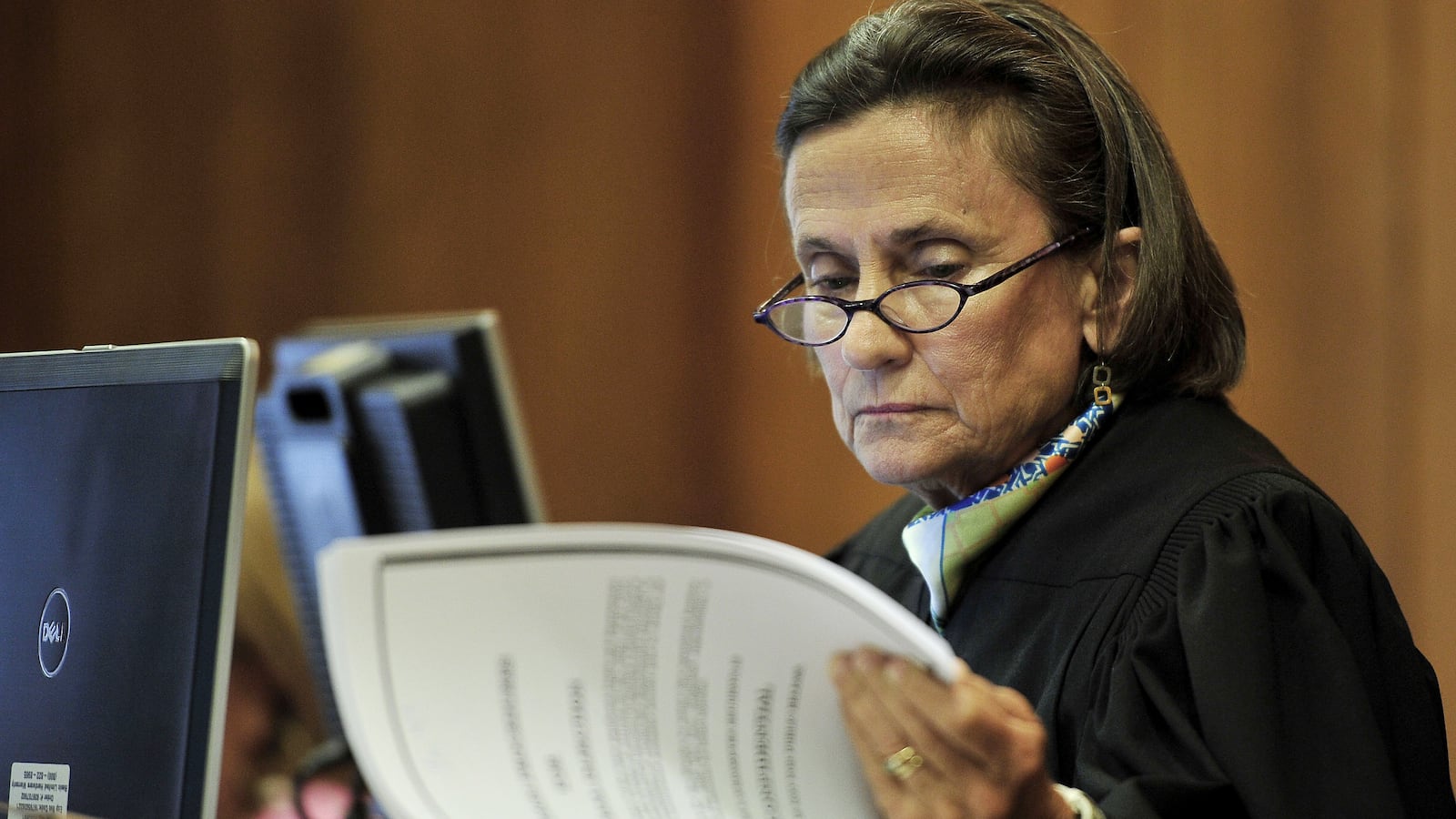A 3-year-old lawsuit challenging Tennessee’s system of funding public schools is one step closer to trial after a Nashville judge turned back the state’s second attempt in three months to derail the case.
Davidson County Chancellor Claudia Bonnyman last week stood by her decision from July to deny the state’s motion to dismiss the suit on constitutional and legal grounds.
Her rulings mean that the case — which the state’s attorneys say “has few rivals in terms of its breadth and its cost” — is on track to go to trial next spring in Nashville.
If successful, the lawsuit could force Tennessee to invest more in public education, which at almost $5 billion already takes the largest chunk out of the state’s $37.5 billion annual budget.
The litigation pits Tennessee’s two largest districts against the state over whether it allocates enough money to provide an adequate education, particularly for urban school systems that serve more students who live in poverty, have special needs, or come from non-English-speaking homes. Memphis-based Shelby County Schools filed the suit in 2015, and Metropolitan Nashville Public Schools joined the litigation last year.
Tennessee is among more than a half dozen states where lawsuits are winding their way through the courts over the quality of schools, the adequacy of funding, and whether some students are being shortchanged, especially as states raise academic standards without always increasing funding for resources and training to help students meet those benchmarks.
Outgoing Gov. Bill Haslam says Tennessee has been an exception by adding $1.5 billion to the K-12 pot during his eight-year administration. But attorneys for Memphis and Nashville schools say the investment falls woefully short and that Tennessee isn’t meeting its constitutional obligation to provide its children with a “free, adequate, and equitable education.”
Both legal teams are lining up expert witnesses, whose testimony will provide the meat of the case. They already have filed hundreds of thousands of pages of documents and are scheduled to take depositions this fall.
“This case has been pending for over three years with the ultimate goal of getting to trial to make a ruling, and we are closer now than ever,” said attorney Charles Grant, who represents both districts through the Tennessee firm of Baker Donelson.
Tennessee still could appeal to a state court in an effort to sidestep Bonnyman’s rulings, but that would be highly unusual. A spokeswoman for Attorney General Herbert Slatery said Tuesday that the state is evaluating its options under Tennessee law.
The question of adequate school funding is different from one posed by several previous landmark cases in the 1980s and ‘90s that focused on whether Tennessee was funding schools equitably. This litigation is about the size of the funding pie, not just how it’s carved up.
In documents, the state called the adequacy argument “extraordinary” since the court is being asked, in essence, to order the Legislature to boost its spending on schools, which would “require either raising taxes or redirecting existing revenue from other state services, or possibly both.”
"We don’t think the state has ever measured what it would actually cost to provide an adequate education."
Lori Patterson, attorney
Tennessee’s two earlier funding cases ended up at the State Supreme Court and forced the state to change its funding formula so that smaller and rural school systems now receive a greater share of money than they previously were getting.
If the current legal battle mirrors those cases, litigation likely will drag on for years through trial and appeals and end up again in the state’s highest court.
A trial itself could take weeks and even months. A recent trial over the adequacy of school funding in New Mexico consumed two months in court. Another trial on an adequacy claim in Connecticut lasted five months.
The decision by Nashville’s school board to join in the Memphis lawsuit slowed the process but also made the plaintiffs’ case stronger, said Lori Patterson, another attorney representing the school systems.
“They’re joining together to say education is not adequately funded from a constitutional standpoint,” she said. “We don’t think the state has ever measured what it would actually cost to provide an adequate education.”
Theirs is not the only funding lawsuit pending in Chancery Court. Months before Shelby County Schools went to court, Hamilton County’s school board and six other districts in southeast Tennessee filed their own suit asking the court to order the Legislature to address a funding formula that they say leaves schools chronically underfunded. That case appears to have stalled, however, and representatives for the state and Hamilton County Schools had no comment on its status.
You can follow our coverage of this topic here.

